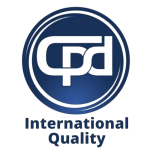Quick Overview
CPD (Continuing Professional Development) accreditation is a quality mark that validates training programmes, boosting their credibility and appeal to professionals. While costs vary depending on factors such as course type, provider size, and accrediting body, the investment often brings long-term returns in reputation, enrolment, and business growth.
This blog will walk you through:
✅ Key factors influencing CPD accreditation costs, from course type to provider size.
✅ Typical price ranges for small providers vs larger institutions.
✅ Additional costs such as application, renewal, site visits, and consultancy.
✅ Comparison of fees across major accrediting bodies like CPD Standards Office, BCS, ILM, and RSPH.
✅ The value and ROI of CPD accreditation for training providers.
✅ Practical tips to plan, budget, and manage accreditation costs effectively.
Factors such as programme complexity, accrediting body, course length and provider size all affect CPD accreditation cost. Continuing Professional Development (CPD) accreditation is crucial for professional training programmes to offer high-quality training and demonstrate to potential participants the credibility and legitimacy of their training programme to enhance their standing in the industry. For training providers, possessing CPD accreditation can attract more participants and help with business growth. However, the cost of CPD accreditation may differ significantly depending on many factors. This guide will provide an overview of the costs of getting CPD accreditation and what training providers can reasonably expect to see.
Factors Influencing CPD Accreditation Cost
Type of Program
The exact nature and complexity of the training programme will affect the fees charged for accreditation of the CPD. For instance, online training programmes will usually be cheaper to accredit than in-person training workshops because reviewing the process for online learning may be less complex to evaluate logistically. This is because online programmes are often formatted in a standardised standardised way – they may follow a specific format and may include automated assessments, for example. Alternatively, in-person workshops will often be evaluated in a more detailed way – for example, by reviewing the training environment and the materials provided as part of the course and assessing the qualifications of the trainer who delivers the training session.
The complexity of the content itself makes a difference, a highly technical or specialist course that demands rigorous testing of learning outcomes will be more expensive to accredit than an introductory course that covers a general topic. If the programme is divided into several modules or incorporates advanced content that demands specific occupational expertise to review, the time and resources required to carry out the evaluation might result in the accrediting body charging more.
Accrediting Body
The fees and the requirements of different CPD accrediting bodies can also have an impact on the overall costs. Some bodies have a fixed fee for accreditation of a course, but others can offer tiered pricing depending on the size and complexity of the programme. In contrast, the larger or more established bodies (for example, the CPD Standards Office or BCS) may charge more because of their wider recognition. Smaller accrediting bodies might charge less but limit the scope of their recognition.
They will need to investigate the different accrediting bodies to determine what their pricing models are, what they uniquely provide in terms of visibility and third-party recognition, and how the fees they charge compare with the potential awards they offer. Some providers may find that one accrediting body, whether because it fits with their industry or audience, is worth the investment, even if the cost to participate is higher than another body might offer.
Course Duration and Content
It is a function of course length and depth. Obviously, the longer and more detailed a programme, the more time and effort is required to review it. While the same standards of quality are applied to all courses, accreditation bodies must also ensure that the course provides appropriate application to the industry and learning outcomes. Clearly, going into more depth will mean greater costs because it will involve more work for the reviewer due to the length of the programme or the type of assessment required.
For instance, a course or workshop with a short time frame, maybe a few hours or a few days, could require a basic evaluation, keeping accreditation costs relatively low. In contrast, for a course with a longer-term certification programme, e.g. a few weeks or months, more evaluations may be needed, making the cost higher. Trainers should consider the content of the course and allocate their budget for accreditation accordingly.
Organisation Size
The size of the provider and the number of courses that they are seeking accreditation for are also factors, with smaller organisations or those with only one or two courses paying less than larger providers. Many accrediting bodies offer single-course accreditation packages designed for small organisations or individual trainers who are not likely to have large training portfolios.
Bigger institutions or providers who want to apply for credit for multiple courses or for an entire training portfolio will be charged more. Some accreditation bodies provide bulk pricing or discounts for accrediting multiple courses at the same time, but this can still be a considerable outlay for bigger organisations. The complexity of managing multiple accreditations at the same time can also add to the expense, particularly if the courses have different content, modes of delivery, or audiences.

Typical Cost Ranges for CPD Accreditation
Small Providers
A single accreditation of a course for a small provider or an individual trainer can cost between £300 and £1,500 depending on which body is accrediting and on the nature of the course. Some bodies offer a ‘basic’ accreditation package for small providers with a simple review process and fewer ‘extras on offer’, which is ideal for a trainer or small firm offering a few courses.
Furthermore, small vendors should factor in any additional costs that they incur, such as upgrading course materials at some point down the line, which might require a retrofit or renewal fee. Although initial costs for a single course can be manageable, the accreditation title could also come with some ongoing expenses for keeping the title active over time.
Larger Providers or Institutions
Costs for larger organisations or training institutions looking for accreditation across a suite of courses or for an entire training portfolio can range from £3,000 to £10,000 or more, depending on the scale of the programme. The accreditation of more than one course at a time requires a more detailed review of the course content in the form of detailed audits of course materials, instructor qualifications and delivery methods. This adds considerably to the total cost of the accreditation programme, especially for learning institutions that offer a broad scope of training across a variety of subjects.
While some larger providers may pay only annual renewal fees or reassessment fees, the majority will be required to pay assessment fees for each one of their programmes each time accreditation is reviewed. Depending on the structure of the review, this cost could be substantial. Alternative business models, such as accreditation packages, could allow accrediting bodies to provide discounted bulk accreditation rates or discounts for accrediting multiple programmes at the same time, thereby lowering the per-course cost for larger providers.
Additional Fees to Consider
As well as the typical fees required for CPD accreditation, you should also be aware of other possible fees that may occur. Some accrediting bodies will charge an application fee to review your initial submission and then a processing fee once your application is submitted (some will even charge these fees for every course you offer for CPD accreditation). These fees are generally non-refundable, even if your course is not ultimately approved for accreditation.
Renewal and maintenance costs are another factor to consider. Depending on the accrediting body, CPD accreditation may need to be renewed once every 1-3 years. Renewal fees are typically less than the initial accreditation fee, but they’re still something that training providers need to budget for. Updates to course material could also merit reassessment fees – particularly if the changes are substantial.
Often, courses that require site visits or audits (either in person or virtually) will incur an added cost to prepare for and host the auditors. Accrediting bodies can also do ‘check-up’ visits to make sure the programme is being delivered as they were originally promised, with site visits usually incurring an additional expense for accreditation. Finally, training providers who don’t have an in-house capacity to prepare accreditation materials will often opt to hire a consultant to help them throughout the process.

Additional Costs to Consider
Application and Processing Fees
Some accrediting bodies charge application and processing fees for CPD before access to the course material is given to them for review; these fees cover the initial review of the course materials and the organisation’s suitability for accreditation. The fees range from £100 to £500, depending on the accrediting body, and they are generally non-refundable in the event that the course is not approved. Therefore, it is important to check that all submission materials are complete and satisfy the accrediting body’s requirements before applying.
Renewal and Maintenance Fees
In some cases, CPD accreditation accrues ongoing renewal fees. Most accreditation bodies require that courses be re-assessed every 1-3 years to ensure that the course continues to be fit for purpose and matches developments in the industry. Renewal fees typically cost less than the initial cost of accreditation, but they are also an ongoing cost. Providers should budget for renewal costs, which range from £200 to £1,000, depending on the accrediting body and the scale of the programme being renewed.
Site Visits and Audits
For some courses, especially in-person training, accrediting bodies might request site visits or audits of the in-person training space, course delivery, and facilities. This is often the case if the course has a workshop or other hands-on component where the layout of the space is integral to the delivery. These site visits vary in price but can range from £500 to £2,000 on top of the cost of accreditation.
Consultancy Services
Others might seek the help of consultants to manage the accreditation process if they are unfamiliar with the requirements, do not have the resources to create all the required documentation themselves or do not wish to take time away from the delivery of their courses. Consultancy fees can vary from £500 to £3,000, depending on the complexity of the course and the level of support needed. This is an additional expense, but working with a consultant often speeds up the accreditation process and helps the training provider get approval on their first application, potentially saving money in the long term.

Cost of Different CPD Accreditation Bodies
CPD Standards Office
The CPD Standards Office is the largest accreditation body for CPD in the UK and one of the most formal, offering accreditation for a range of industries and professions. Depending on the complexity and length of the course, CPD accreditation through the CPD Standards Office can cost anywhere from £1,000 to £3,000 per individual course. For larger organisations or suppliers seeking to accredit more than one course or an entire portfolio, the costs can rise to £5,000 to £10,000 for a more comprehensive package.
The CPD Standards Office provides detailed reviews, including inspections of course materials, delivery methods and the qualifications of instructors. Costs can also include annual renewals and reassessments (typically required every 1-3 years to continue accreditation).
BCS (British Computer Society)
Provider organisations focused on IT, and digital skills can approach the British Computer Society (BCS) for CPD accreditation on a course-by-course basis; this is specifically targeted at digital and IT skills training. BCS accreditation is respected in the IT sector, and it gives digital and IT skills courses a strong quality signal. BCS accreditation costs from £2,000 to £6,000 depending on the technical depth of the course, its length, and provider size.
BCS may charge fees for site visits or audits, particularly for complex programmes that involve hands-on technical training. The accreditation is designed to map to industry standards for digital skills. It is a worthwhile investment for training providers who want to achieve recognition from the IT and technology sectors.
Other Accrediting Bodies
Besides the one I mentioned earlier, numerous other accrediting bodies offer CPD accreditation for different sectors at various fee levels:
The Institute of Leadership Management (ILM): Accredits leadership and management training programmes, which cost between about £1,500 and £5,000, depending on the level of the programme.
Royal Society of Public Health (RSPH): Focused on training in health, RSPH accreditation can cost between £1,000 and £4,000, depending upon the duration and substance of the programme.
The Association for Project Management (APM): APM will accredit training for project management, costing anywhere between £2,000 and £5,000 depending on the length of the qualification and the level of detail and relevance to the industry of the training course.
Each accrediting body might have additional renewal fees and annual assessments, and providers should be fully aware of the total costs that will be incurred to maintain accreditation over the long term.

Is CPD Accreditation Worth the Cost?
The Value of CPD Accreditation
It can be a good move for a training provider to invest in CPD accreditation if they want to increase the reputation of their courses. Professionals and employers will likely trust the quality of an accredited course over a non-accredited one. More trust can lead to more enrolments and a successful course. CPD accreditation ensures a course meets the standards of a specific industry and aims to equip professionals with relevant and practical learning outcomes they can use in their careers.
For business owners, offering CPD-accredited courses can be a useful marketing tactic, too. It can help to boost your course’s presence in search results and reflect the professional and credible nature of your courses, particularly if you can attract high numbers of course-takers and learners who view the course for CPD purposes – for example, to meet entry/renewal requirements for certification, licensing, or professional development. CPD accreditation can also increase customer satisfaction and retention as participants feel they are attending a high-quality and recognised course.
Long-term ROI for Providers
Although the short-term ROI for CPD accreditation may be low, in the long term, the potential benefits can be high. The costs of accreditation may be substantial, but the benefits, such as higher enrolments, a better reputation and a higher level of client satisfaction, will usually outweigh this in the long run. Fees for accredited programmes are often higher than for those that are not accredited, and participants are prepared to pay higher fees for training that is endorsed by an official body.
Furthermore, CPD accreditation can generate more business because prospective participants who are looking for formally recognised qualifications are more likely to choose providers whose programmes are accredited through CPD. As a consequence of this higher credibility, it is expected over time that there will be a greater demand for the courses, a more solid client base and more opportunities for partnership with other organisations or businesses.
Tips to Manage CPD Accreditation Cost
Plan Ahead
The cost of CPD accreditation needs to be planned for and budgeted for in advance. Training providers should audit their course offerings and decide which courses would most benefit from being CPD accredited. They should also set aside the budget for accreditation – both for the upfront cost of the accreditation and any renewal/maintenance costs. Anticipating renewal fees and the possible need for reassessment in the future enables this process.
Furthermore, providers should do their homework by reviewing a variety of accrediting bodies to compare prices and benefits, selecting the one best suited to their line of work and the training they need while considering the size of their organisation. Some accrediting bodies have tiered pricing or discounts for smaller providers, so this is worth inquiring about.

Start Small
For small providers or those just starting on their CPD accreditation journey, it is usually better to bite off a little more than you can chew and start by seeking accreditation for a single course rather than an entire portfolio. Costs are controlled, and providers get the opportunity to see what benefits accreditation brings before committing to a bigger investment. Once the first course is accredited, the provider can then incrementally build on that before investing in further accreditations as their business grows.
Accreditation of one course also helps providers become familiar with the accreditation process, which may make subsequent applications easier. Feedback from the initial accreditation can lead providers to refine their processes and materials, which in turn may reduce the time and cost of subsequent accreditations.
Leverage Resources
Secondly, to reduce CPD costs, training providers should use their resources as much as possible. For instance, many organisations have internal experts who can help design course materials, develop assessments, and check compliance with the requirements of the accrediting body. Using in-house teams is more likely to reduce accreditation fees than using external consultants.
At the same time, utilising existing human resources (HR) or training departments can allow you to outsource most of the paperwork since they’re typically well-versed in the company’s learning goals and training strategies. You can also use online tools and templates available from accrediting bodies to help you prepare your submissions, further reducing the need for costly outside help.
Conclusion
In some cases, this might be a few hundred pounds, and in others, several thousand. While the investment may sting at first, if the value of CPD accreditation in terms of credibility, increased enrolment and ongoing business growth is understood, it will be seen as a sensible investment. If training providers get the right advice, they should feel confident that they are making a worthwhile investment and that they are on the right track to establishing a strong reputation and longevity in the market for professional training.

